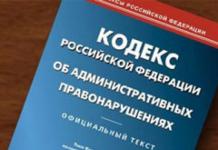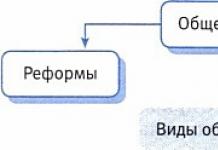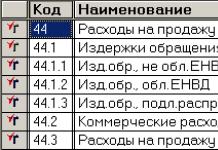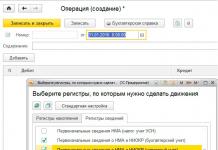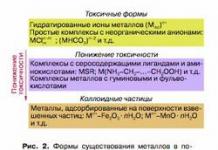What are speech errors? These are any cases of deviation from language norms that are valid. A person without knowledge of these laws can work, live, and build communications with others normally. However, in certain cases, efficiency may suffer. There is a risk of being misunderstood or misunderstood. In these and other cases, you simply need to know what errors exist and how to deal with them.
Correcting speech errors in sentences is not always easy. In order to understand what exactly to pay attention to when composing this or that oral statement or written text, we created this classification. After reading this article, you will find out exactly what shortcomings will need to be corrected when you are faced with such a task.
When classifying speech errors, it would be logical to consider the fundamental criterion to be a unit of the linguistic tier - one whose norms of writing, education, and functioning were violated. The following levels are distinguished: words, phrases, sentences and text. A classification of speech errors was created using this division. This will make it easier to remember their different types.
At the word level
The word is the most important unit of language. It reflects the changes taking place in society. Words not only name a phenomenon or object, but also perform an emotionally expressive function. Therefore, when choosing which of them are appropriate in a particular case, you should pay attention to the stylistic coloring, meaning, compatibility, and usage, since violation of at least one of these criteria can lead to the appearance of a speech error.
Here you can note spelling errors, that is, a violation of spelling patterns existing in the modern Russian language. Their list is known, so we will not dwell on this in detail.

Derivatives at the word level
At the word level, there are also word-formation speech errors, that is, violations of various norms of word formation of the Russian literary language. These include the following types:
- incorrect direct word formation. An example is the use of the word “hare” instead of the correct version “hares”, or a “thoughtful” (instead of “thoughtful”) look and others.
- speech error associated with incorrect reverse word formation. For example, “loga” (from the word “spoon”). Such use is usually typical for children of primary school or preschool age.
- Another type is substitutive word formation, which manifests itself in the replacement of one or another morpheme: “weigh” (from the word “hang”), “throw away”, used instead of “throw away”.
- word-composition, that is, the creation of a derivative unit that cannot be considered as occasional: reviewer, spender.
All these are types of speech errors that relate to word formation.
Word-level grammatical

There are also other types of incorrect uses of words. In the Russian language, in addition to word-formation ones, there are also grammatical and speech errors. You should be able to distinguish them. Grammatical errors are the incorrect formation of various forms, a violation of the properties of the formative system in different parts of speech. These include the following varieties:
- associated with a noun. This may be the formation of the accusative case form of some inanimate noun by analogy with an animate one. For example, “She asked for a breeze” (the accusative form “breeze” should be used). Here we also include the opposite situation - the formation of the accusative case form for an animate noun in the same way as for an inanimate one. Example: “They harnessed two bears to a sleigh” (correct: “two bears”). In addition, when forming case forms, there may be a change in the gender of the noun: “February blue”, “pie with jam”. There are cases when indeclinable names are inclined: “to ride the meter”, “to play the piano”. Some of us sometimes form plural forms for nouns, while they only have singular forms, and vice versa: “a tray of teas.”
- speech errors associated with adjectives. This may be an incorrect choice of short or long forms: “The man was quite full,” “The building was full of people.” This also includes the incorrect formation of degrees of comparison: “Lena was weaker than Lyuda,” “The new ones are becoming more and more militant.”
- Another speech error is an error associated with the verb (forms of its formation). Example: “A man is rushing around the room.”
- speech errors associated with participles and gerunds. Examples: “Looking around, a hunter walked,” “Riding on a bus.”
- confusions associated with the incorrect use of pronoun forms: “I didn’t want to tear myself away from (the book),” “Their contribution to the common cause,” and others.
Lexical at the word level

The next type of errors is lexical, that is, a violation of various lexical norms, lexical-semantic compatibility and word usage norms. They manifest themselves in the fact that compatibility is disrupted (less often in a sentence, most often at the level of a phrase).
This may be the use of a meaning that is unusual for the word. Such a speech error was made in the sentence “All the walls of the room were covered with panels” (the word “covered” cannot be used in this context). Another example: “Luxurious (that is, living in luxury) was the landowner Troekurov.”
It should be noted here that there is a violation of the lexical-semantic compatibility of a certain word: “The sky was bright” (“stand” in the meaning of “to take place” can only be used in relation to the weather), “The rays of the sun lay in the clearing” (correctly: “illuminated the clearing” ). This type of error primarily affects the verb.
In addition, we can highlight the attribution of some figurative meaning to a word that does not have one: “This man’s weary hands claim that he had to work a lot.”
The use of synonyms may also be incorrect. These are speech errors, examples of which look like this: “Mayakovsky uses satire in his work” (instead of “uses”), “With his legs spread wide, the boy looks at the football field on which the players are fighting” (correctly - “fighting”). Here we highlight the confusion of the meanings of paronyms: “His eyebrows rose surprisingly” (instead of “surprisedly”), “This work is a typical image of the fantastic genre (that’s right - “sample”). Let’s supplement the types of speech errors with polysemy, which cannot be removed in the sentence: “Only These lakes live several days a year."
At the level of phrases
When choosing a word, you should take into account not only its meaning in the literary language, but also lexical compatibility. Not all words can be combined. This is determined by their semantics, emotional coloring, stylistic affiliation, grammatical properties, etc. When it is difficult to determine whether certain words can be used together, you should turn to a compatibility dictionary. This will help to avoid errors at the level of phrases, sentences, and also text.
Errors at this level occur when there is a violation of various syntactic connections. For example, agreement: “I want to teach everyone volleyball - this is a good, but at the same time difficult sport” (a good, difficult sport). Controls: “I feel a thirst for glory”, “I am amazed at his strength”, “gain strength”. The connection between the predicate and the subject may be disrupted: “Neither heat nor summer is eternal (the singular form is used instead of the plural form “eternal”). All these are types of speech errors at the level of phrases.
Sentence level errors

At this level we can distinguish syntactic and communicative. Let's take a closer look at these speech errors in Russian.
Sentence-level syntax errors
This may be an unjustified parcellation, a violation of structural boundaries. As an example, we can cite the following sentences with speech errors: “Seryozha went hunting. With dogs,” “I see. My dogs are running around the field. Chasing a hare.” Syntactic errors also include violations in the construction of various homogeneous rows: the choice of different forms in a row of homogeneous members: “She was smoothly combed and rosy-cheeked.” Another variety is their different structural design, for example, as a subordinate clause and as a secondary clause: “I wanted to tell you about the incident with that person and why he did this (correctly “and about his action”). There may also be a mixture of indirect and direct speech: “She said that I would definitely fight (here the same subject is meant - “she”, correctly - “will”). Violation in the subordinate and main clauses of the aspectual-temporal correlation of predicates or homogeneous members: “She goes and said,” “When the girl was sleeping, she had a dream.” And another variation is a separation from the defining word of the subordinate clause: “One of the works is hanging in front of us, which is called “Spring.”
Communication errors at the sentence level
The next section is communicative errors, that is, violation of various norms that regulate the communicative organization of a certain utterance. They are as follows:
- actually communicative (violation of logical stress and word order, leading to false semantic connections): “The boys sat on the boat with the keel up.”
- logical-communicative (violation of such a side of the statement as the conceptual-logical). This may be a substitution of the subject performing the action (“Masha’s eyes and facial contours are captivated by the film”); substitution of the object of action (“I like Pushkin’s poems, especially the theme of love”); the combination of logically incompatible concepts in one row (“He is always serious, of average height, his hair is a little curly at the edges, not touchy”); violation of various clan-species relations (“The tone of angry meetings is not difficult to predict - angry speeches addressed to the regime, as well as calls to close ranks”); a mistake when using cause-and-effect relationships (“But he (that is, Bazarov) calmed down quickly, since he didn’t really believe in nihilism”).

- constructive and communicative, that is, violation of the laws of constructing statements. This may be a poor connection or lack of one between the parts of the statement: “They live in the village, when I visited him, I saw his blue eyes.” This also includes the use of an adverbial phrase without connection with the subject related to it: “Life should be shown as it is, without worsening or embellishing it.” Another type of similar error is the break in the participial phrase: “There is little difference between the questions written on the board.”
- information-communicative, or semantic-communicative. This type is similar to the previous one, but differs in that here the deterioration of communicative properties occurs not due to incorrect, unsuccessful structuring of the utterance, but due to the absence or excess of information in it. This may be the ambiguity of the primary intention of the statement: “We are inextricably linked with the country, with it we have the main blow - a blow to the world.” One can also include his incompleteness here: “I myself adore plants, so I am happy to see that our village becomes so unrecognizable in the summer.” This may be the omission of part of the statement and necessary words, semantic redundancy (word repetitions, tautology, pleonasms, duplication of information), etc.
- stylistic errors, that is, a violation of the unity of the functional style, the use (unjustified) of stylistically marked, emotionally charged means. For example, the use of various colloquial words in literary speech, book expressions in reduced and neutral contexts, expressively colored vocabulary that is unjustified (“A couple of robbers attacked the American embassy”), unsuccessful comparisons, metonymies, metaphors.
At the text level
All errors at this level are of a communicative nature. They can be of the following types:
- logical violations are very common errors at the text level. Here we include a violation of the logic of thought, the absence of connections between sentences, a violation of various cause-and-effect relationships, operations with an object or subject, a violation of genus-species relations.
- grammatical violations. This type of error is also common. Here there may be a violation in different sentences of the aspectual-temporal correlation of various verb forms, as well as a violation of agreement in the number and gender of the predicate and the subject in different sentences.
- information and communication disorders. These include constructive and information-semantic insufficiency, that is, the omission of part of a statement in the text; constructive and information-semantic redundancy (in other words, an excess of meaning and a clutter of structures); inconsistency with the constructive specifications of the semantics of statements; unsuccessful use of pronouns as a means of communication; pleonasms, tautology, repetitions.
Stylistic errors in the text
Stylistic violations existing at the text level can be viewed in a similar way. It should be noted that we also attribute to them the monotony and poverty of syntactic constructions, since texts such as: “The boy was dressed very simply. He was dressed in a jacket lined with cotton wool. His feet were wearing moth-eaten socks” - do not indicate syntactic violations, but about the inability to express thoughts in a variety of ways. At the text level, speech disorders are more complex than at the utterance level, although in the latter they are “isomorphic.” As a rule, text errors are syncretic in nature, that is, they incorrectly use the constructive, lexical, and logical aspects of a speech unit. This is natural, since the text is more difficult to construct. At the same time, we need to retain in our memory the previous statements, as well as the semantics of the entire text and the general idea, creating its continuation and completion.

The ability to find flaws in the text, as well as correcting speech errors, are important tasks that every school graduate faces. After all, in order to write a good Unified State Exam in the Russian language, you need to learn to identify all of the above types of errors and try to avoid them if possible.
Error classification
Grammatical errors (G)– these are errors in the structure of a linguistic unit: words, phrases or sentences, i.e. violation of any grammatical norm - word formation, morphological, syntactic.
No.
Type of error Examples
Incorrect word formation. Erroneous formation of forms of a noun, adjective, numeral, pronoun, verb (personal forms of verbs, active and passive participles, gerunds).
Noble ness, miracle technology, according to d cherk, above laugh; more interesting, more beautiful; With five hundred rubles; juggled both hands, theirs pathos, around his there is nothing; How many We have lost our moral principles due to the loss of spirituality; them moves feeling of compassion; streams of water, flowable down, struck the author of the text; higher onto the stage, the singers bowed.
Violation of approval norms
I know a group of guys who are seriously into... imisya jazz.
Violation of management norms
We need to make nature more beautiful. Everyone was surprised at him by force.
Disruption of the connection between the subject and the predicate or the way of expressing the predicate
The main thing I want to pay attention to now is artistic side of the work. He wrote a book that epic. Everyone was glad, happy and funny.
Errors in constructing sentences with homogeneous members
A country loved And was proud poet.
In the essay I wanted to say about the meaning of sports and why I love it.
Errors in constructing sentences with participles
Reading the text, such a feeling of empathy arises.
Errors in constructing sentences with participial phrases
The narrow path was covered failing snow under your feet.
Errors in the construction of complex sentences
This book taught me to appreciate and respect friends, which I read as a child.
It seemed to the man That that this is a dream.
Violation of sentence boundaries
He was not accepted into the basketball team. Because he was short.
Violation of the types of tense correlation of verb forms
Freezes for a moment the heart and suddenly will knock again.
Omitting a sentence member (ellipsis)
At the meeting there was accepted (?) hold a cleanup day.
Errors associated with the use of particles: separation of a particle from the component of the sentence to which it belongs
It would be nice if the picture showed would artist's signature. In the text Total two problems are revealed.
Speech errors (P)– these are errors not in the construction of a sentence, not in the structure of a linguistic unit, but in its use, most often in the use of a word, i.e. a violation of lexical norms. This is pleonasm, tautology, speech cliches, inappropriate use of colloquial vocabulary, dialectisms, jargon; expressive means, non-discrimination of paronyms. Errors in the use of homonyms, antonyms, synonyms, polysemy not eliminated by the context.
No.
Type of error Examples
Using a word in a meaning that is unusual for it
We were shocked wonderful acting. Thanks to fire, the forest burned.
Unjustified use of dialect and colloquial words
Such people always succeed burn others. Oblomov did nothing all day long played the fool.
Poor use of pronouns
The text was written by V. Belov. He refers to artistic style; I immediately had a picture of his imagination.
The use of words of a different stylistic coloring; mixing vocabulary from different eras; inappropriate use of clerical language, expressive, emotionally charged words, outdated vocabulary, jargon, inappropriate use of phraseological units
By idea author, the hero wins; Molchalin works secretary of Famusov; In the novel by A.S. Pushkin take place lyrical digressions; Author every now and then resorts to the use of metaphors and personifications. If I were there, then for such an attitude towards my mother I would cupcake V gnawing would give; Zoshchenko don't put your finger in your mouth, but let me just make the reader laugh.
Failure to distinguish shades of meaning introduced into a word by prefix and suffix
In such cases I I glance to the dictionary.
Failure to distinguish between paronyms and synonymous words; errors in the use of antonyms when constructing an antithesis; destruction of the figurative meaning of a phraseological unit in an unsuccessfully organized context
Were accepted spectacular measures; The name of this poet familiar in many countries; The third part of the text is not funny, but also not a major motive makes us think; the record hasn't said its thing yet last word.
Violation of lexical compatibility
Use of unnecessary words, including pleonasm
Young young man; Very beautiful.
Using nearby or closely related words (tautology)
In that the story is told about real events.
Unjustified repetition of a word
Hero story does not think about his actions. Hero He doesn’t even understand the depth of what he has done.
Poverty and monotony of syntactic structures
When the writer came to the editorial office, he was accepted by the editor-in-chief. When they talked, the writer went to the hotel.
Use of unnecessary words, lexical redundancy
Then so that you can smile, about it Our bookstore will take care of it.
Logical errors (L). Logical errors are associated with a violation of the logical correctness of speech. They arise as a result of a violation of the laws of logic, committed both within one sentence, judgment, and at the level of the entire text.
No.
Type of error Examples
Comparison (contrast) of two logically heterogeneous (different in scope and content) concepts in a sentence or text
Attended the lesson director, librarian, and Anna Petrovna Ivanova And Zoya Ivanovna Petrova; He leaned his back to the battery; Behind good studies and raising children parents students received letters of gratitude from the school administration.
Violation of cause-and-effect relationships
In recent years so many done to modernize education, but teachers work in the old way, because Issues of modernization of education are being resolved weak.
A missing link in an explanation, a “logical leap.”
It is hardly possible to block the flow of people through our yard. [?] How I want the yard to be an adornment for both the school and the village.
Rearranging parts of the text (if it is not due to the assignment for the essay or presentation)
It's time to return this word to its true meaning! Honor... But how to do this?
Unjustified substitution of the person from whom the story is told (for example, first from the first, then from the third person)
Comparison of logically incomparable concepts
Syntax encyclopedic articles are excellent from other scientific articles.
Composition and text errors
Bad start
The text begins with a sentence containing an indication of the previous context, which is absent in the text itself, by the presence of demonstrative word forms in the first sentence, for example: In this text the author ...
Errorsin the main part
a) Bringing together relatively distant thoughts in one sentence.
b) Lack of consistency in presentation; incoherence and violation of sentence order.
c) The use of sentences of different types in structure, leading to difficulty understanding the meaning.
Bad ending
Duplication of conclusion, unjustified repetition of previously expressed thoughts.
Factual errors (F) - a type of non-linguistic error, which consists in the fact that the writer cites facts that contradict reality, gives incorrect information about factual circumstances, both related and not related to the analyzed text (background knowledge)
No.
Type of error Examples
Bazarov was a nihilist and therefore killed an old woman with an ax; Lensky returned to his estate from England; Happiness for Oblomov was loneliness and indifference.
Inaccuracy in the quote. No indication of the author of the quotation. Incorrectly named author of the quote.
The book means a lot to me, because Lenin said: “ Live and learn!»
Ignorance of historical and other facts, including time displacement.
Great Patriotic War of 1812; The capital of the USA is New York.
Inaccuracies in the names, surnames, and nicknames of literary characters.
Distortions in the names of literary works, their genres, errors in indicating the author.
Turgen b ev; "Taras And Bulba"; V Turgenev's stories"Crime and Punishment".
Sayapina Oksana Valerievna
As practical tasks, we offer you excerpts from students’ work.
Find errors and try to correct them.
Exercise No. 1
Find errors related to the violation of word order. Try to explain them and correct them.
- In the proposed essay for analysis, the author addressed a topic that is always important.
- I believe that every parent is obliged to raise their child to be kind and honest.
- Many families find themselves in a situation similar to the one described by V. Tendryakov.
- Four days later he reached his village,
- Yesterday evening around ten o'clock he was seen on the street.
Exercise No. 2
Determine the type of error. Correct the sentence.
- One can admire his courage and heroism.
- Returning from vacation, he learned about the consequences of the news.
- Sometimes people die through such situations.
- Every person needs attention and understanding of his problems.
- They stop understanding and trusting each other.
Exercise No. 3
Determine the type of error. Try to rearrange the sentence so as to avoid violating the speech norm.
- He was not ashamed of his appearance, and that his fellow villagers would laugh at him.
- Sighing with annoyance and completely upset, the next visitor left the office.
- It is necessary not only to help the elderly, but also young families.
- Citizens who board the bus are asked to pay for the fare.
- After reading the essay, it seemed to me that the author was close to his problem.
Exercise No. 4
In the proposed excerpt from the student’s essay, find all cases of violation of speech norms. Edit the text.
The problem of patriotism and nationalism worries the author. One concept is quite often modified by another. If patriotism reflects the strength of a nation, then nationalism is different. Sometimes your hair stands on end when you read newspaper materials on the topic of interethnic conflicts.
In addition to the above, I would like to add that all people on earth are brothers and should treat each other with respect.
Exercise No. 5
Distribute sentences with stylistic errors into three groups: 1) mixing vocabulary of different styles; 2) use of clericalism; 3) speech stamps. Try to rebuild the structures in accordance with the norm.
1. In the village center of culture there was a real oak tree. 2. Sometimes it happens like this: a person himself reads and knows a lot, but does not carry out explanatory work among the population. 3. The author brings to the attention of readers his thoughts on this matter. 4. Natasha Rostova loved one guy, but wanted to give her hand and heart to another. 5. Anyone can get into a difficult life situation, and there is no point in pretending to be invulnerable. 6. In the aquatic environment there were pikes, crucian carp, and small minnows. 7. The image of Andrei Bolkonsky is a typical role model. 8. Selfless patriotism and fortitude characterize the hero of this essay.
A multidimensional study of the results of the Unified State Examination in 2008 and previous years allows us to make a number of generalizations regarding the most common shortcomings of graduates in the exam. The following mistakes can be considered typical when performing examination work on literature in the Unified State Exam format:
Insufficient knowledge (and in some cases ignorance) of the text of works of art;
Lack of knowledge of the historical-literary and cultural-historical context;
Incorrect or inaccurate use of literary terms and concepts;
Inadequate reading of task statements;
Inability to construct one’s own monologue in writing;
Defects in the verbal formatting of written responses of varying lengths.
This methodological problem is discussed in detail in the manual “Typical errors when completing tasks on the unified state exam” (authors: S.A. Zinin, L.V. Novikova, O.B. Maryina), which will be published by Russkiy Slovo in 2009.
Factual errors
Violation of the requirement of reliability in the transmission of factual material causes factual errors, which are a distortion of the situation depicted in the statement or its individual details.
Factual errors include various kinds of factual inaccuracies: incorrectly indicated years of the writer’s life or the time of creation of a work of art, incorrect designations of toponyms, errors in the use of terminology, incorrectly named genres, literary trends and directions, etc. For example, in the works of 2008 there was a typical factual error: the examinees poorly recalled the surname of one of the heroines of the novel by I.A. Goncharov “Oblomov”: instead of indicating Pshenitsyna in the examination papers, one could find, for example, Khozyaykina. Examinees often confuse not only the names of the characters, but the titles of the works (for example, some of the 2008 examinees could not accurately indicate the names of the chapters of M.Yu. Lermontov’s novel “A Hero of Our Time”).
Factual errors can be divided into gross and non-gross. Of course, if the examinee claims that the author of “Eugene Onegin” is Lermontov, or calls Tatyana Larina Olga, these are gross factual errors. If, instead of “Princess Mary”, the graduate wrote “Princess Mary”, then this error can be assessed by the expert as a factual inaccuracy or typo and not taken into account when evaluating the work.
Due to poor knowledge of the text of the work, examinees incorrectly interpret the actions and words of characters, events, “putting” meaning into the text that is missing from it; erroneously or incompletely determine the role of the analyzed fragment in a work of art; incorrectly highlight the structural elements of the text (part, chapter, etc.); distort the plot, etc. For example, in one of the works it was argued that the happiness of Katerina and Boris (A. N. Ostrovsky’s play “The Thunderstorm”) was prevented by Boris’s parents. Unfortunately, there are many examples showing the lack of any orientation in the text. One of the tasks based on the play by D.I. Fonvizin's "Undergrown" required examinees to list the positive characters of the comedy. A number of students came up with very unexpected combinations: along with Milon, Pravdin and Starodum they were named (based on the “what I remember” principle) Skotinin, Prostakova, Vralman (even the presence of “speaking” surnames did not help). Ignorance of texts leads to the construction of unsuccessful or false comparisons when performing tasks that require the use of literary context. In one of the versions of the examination paper, the question was asked: “Which poems of Russian poets have the character of a lyrical confession and what motives bring them closer to the poem by S.A. Yesenin's "Letter to Mother"? Some examinees followed the path of listing poets at random, of course, not forgetting Pushkin (counting on his “comprehensiveness”) and found themselves in trouble, since the poet did not touch on the “maternal” theme in his lyrics (there is only such an addressee as the nanny).
So, typical factual errors include:
1) distortion of historical and literary facts;
2) distortion of proper names;
3) errors in indicating the time and place of the event;
4) errors in conveying the sequence of actions, in establishing the causes and consequences of events, etc.
Logical errors
Examinees who find it difficult to understand the specifics and logic of the question posed usually demonstrate an inability to construct their own monologue statement logically and with reasoning, and an inability to make generalizations.
Monitoring compliance with the basic laws of logical thinking is a mandatory stage in analyzing an essay. The best work of the examinees is distinguished by clarity of judgment, consistency, consistency of presentation of thoughts and validity of theses and conclusions.
Logical errors, according to the definition of D. E. Rosenthal, are the failure to differentiate “closed in some respects designated concepts. Often the examinee does not distinguish between cause and effect, part and whole, related phenomena, generic, specific and other relationships.” (For example: “Since Oblomov is a lazy person, he had Zakhar - his servant”).
The variation in the semantic organization of a text is not limitless: the laws of correct thinking determine the clear development of thought. The logical quality of the information carried by the text is determined by its reliability, accuracy and consistency.
Each thought of the text, when repeated, must have a specific, stable content (the subject of reasoning should not change arbitrarily during repetition, concepts should not be replaced and mixed).
Confusion of thinking and lack of awareness can lead to the presence in the essay of two opposing judgments about the same subject, presented by the examinee as true.
The accuracy of the selection of theses, the clarity of their formulation, and the constructive clarity of the text contribute to the logical certainty of the presentation and make it possible to achieve consistency in the development of thought.
The essay must be demonstrative (every true thought must be substantiated by other thoughts whose truth has been proven). If this requirement is met, all thoughts expressed in the text follow from one another. Thus, in an essay, all thoughts must be internally connected with each other, flow from one another, justify one another. The truth of judgments must be confirmed by reliable evidence.
Typical logical errors of examinees include:
1) violation of the sequence of utterances,
2) lack of connection between parts of the sentence,
3) unjustified repetition of a previously expressed thought,
4) fragmentation of a microtheme by another microtheme,
5) disproportion between parts of the statement,
6) lack of necessary parts of the statement,
7) rearrangement of parts of a statement, etc.
Speech errors
Speech errors should be distinguished from grammatical errors, which consist of erroneous word formation, erroneous formation of forms of parts of speech, violation of coordination, control, as well as disruption of the connection between subject and predicate, erroneous construction of sentences with adverbial or participial phrases, homogeneous members, as well as complex sentences, mixing direct and indirect speech, omitting necessary words and violating sentence boundaries.
(See Assessment of knowledge, abilities and skills of students in the Russian language. A manual for teachers. - Moscow.: Education, 1986. P. 81).
These errors undoubtedly reduce the quality of work, and the worst of them can be classified as speech errors.
Speech and stylistic errors are directly related to the presentation of literary material. Stylistic errors are one of the types of speech errors. Their distinction is important for high quality work. Speech errors of a lexical nature include:
1) the use of a word in a meaning that is unusual for it;
2) violation of lexical compatibility;
3) the use of an extra word (pleonasm);
4) the use of a number of words with the same root (tautology);
5) the use of a word (or expression) of a different stylistic coloring;
6) violation of the aspectual-temporal correlation of verb forms;
7) poverty and monotony of syntactic structures;
8) poor word order (same work, p. 87).
Let us emphasize once again that a type of speech error is stylistic. “Stylistic mixtures,” as V.I. points out. Kapinos, is a special group of speech defects that destroy the unity of the style of expression” (same work, p. 86).
Stylistic errors include:
1) the use of foreign words and expressions;
2) unsuccessful use of expressive, emotionally charged means;
3) unmotivated use of dialect and colloquial words and expressions;
4) a mixture of vocabulary from different historical eras.
Maintaining unity of style is the highest achievement of a writer. Therefore, the stylistic mixtures of V.I. Kapinos rightly suggests calling it stylistic shortcomings.
Assessment of knowledge, skills and abilities of students in the Russian language(Classification of logical, speech, factual errors)
Grade- this is a violation of the requirement of correct speech, a violation of the norms of literary language. We say about her: you can’t say that, it’s wrong.
Shortcoming- this is a violation of recommendations related to the concept of good speech. We evaluate the shortcoming from the standpoint of “worse or better” said or written. In other words, a flaw is a minor mistake, a roughness of speech. You can say that, but it’s better to say it differently.
Language errors(grammatical) are associated with a violation of the structure of a language unit: this is incorrect word formation, a violation of control connections or coordination in a phrase, errors in the structure of a sentence (31%). All violations of grammatical norms are grammatical errors.
Speech errors do not contain structural defects (69%). They arise as a result of incorrect or unsuccessful use of words or syntactic structures.
Grammatical errors– this is a violation of the norms of word and form formation, the norms of syntactic connections between words in a phrase and a sentence. To detect a grammatical error, no context is required; one word, phrase, or sentence is enough. A grammatical error can be made in both written and spoken language. These are non-linguistic errors associated with incorrect presentation of facts (their substitution), as well as their exaggeration or understatement (actual omission).
Factual errors- these are errors with violations of the information reliability and accuracy of the presented material mentioned in the source text (background facts): facts of the biography of the author or hero of the text, dates, names and authorship of the named works.
Classification of logical, speech, factual errors
|
TO |
LOGICAL ERRORS |
||
|
Types of errors |
Illustrative material |
||
|
Example with an error |
Comments. Correct option |
||
|
L-1 |
Violation of cause-and-effect relationships in content Explanation: The reason does not follow the conclusion; The given consequence does not correspond to the specified cause. |
1. The poet perceives the music of a blizzard with his heart, because it is alive... 2. The lyceum teachers, who instilled in their students respect for each other, broadened the poet’s horizons. |
1. The poet perceives music with his heart not because it is alive, but because he loves music! 2. reason: teachers of the lyceum, who instilled in their students respect for each other; consequence: they expanded the poet’s horizons: respect for each other is not the reason for intellectual development. Lyceum teachers instilled in their students respect for each other. They also broadened the horizons of the future poet. |
|
L-2 |
Violation of the logic of combining words into a homogeneous series IT IS ILLOGICAL TO CONNECT TWO OPPOSITE (DIFFERENT) WORDS WITH A CONJUNCTION |
Sophia considers Molchalin a very kind and helpful person. “Molchalin is ready to forget himself for others...” But I think she is mistaken, because in fact the heroine “brought about this love in herself.” |
The definitions of “kind” and “helpful” are not synonyms, since the corresponding words have different lexical meanings. Wherein: Kind is a positive characteristic of a non-evil person. Helpful - always ready to provide a service. first the student talks about how Sofya sees Molchalina; then he wants to argue with the heroine of the comedy A.S. Griboedova “Woe from Wit” and claims that “she is wrong”; But! Instead of proving exactly what Sophia is wrong about, the student asserts a new and therefore ILLOGICAL thought: “the heroine herself aroused this love in herself.” We don’t understand what kind of love we are talking about. Apparently, after the words “she’s mistaken,” the sentence was missing: “because in fact Molchalin doesn’t love her at all, but his dream of rapidly climbing up the career ladder...”, etc. |
|
L-3 |
Violation of the logic of the example in reasoning |
Molchalin flatters everyone. He is ready to “crawl on his knees in front of everyone.” So, for example, he talks to Khlestova about what a lovely dog she has: “Your Spitz is a lovely Spitz, no bigger than a thimble, - I stroked him all over: what silky fur!” But in fact, this dog is disgusting to him: he despises all people from high society. |
Is that all Khlestova and her dog? Is Molchalin ready to crawl on his knees in front of them? Perhaps... but! the dog is not a person from high society. And this is exactly what happened as a result of an incorrectly constructed last sentence. Apparently, it had to be like this: he despises her just like all representatives of high Moscow society, to which he would so like to belong. |
|
L-4 |
Violation of the logic of text construction (construction of a new paragraph). |
Molchalin is very cunning. He understands that only through veneration and helpfulness can one achieve a high position in the world. Molchalin and Chatsky... The relationship between these comedy heroes confirms this idea. |
The student created a sharp transition from one thought to another. Common topics sentences of the essay text are the passages in italics, but! the general thought is torn apart by an unexpected, sharp, and therefore ILLOGICAL thesis (statement): Molchalin and Chatsky... This is true: This idea is confirmed by the complex relationship between the opportunist Molchalin and Chatsky, who does not want to “serve.” |
|
L-5 |
Violation of assertion logic |
Molchalin is scary in his own way. I’m scared to realize how calculating and cynical he is about the feelings of Sophia, who is in love with him. Therefore, I feel very sorry for this hero. |
Molchalin is scary. Next there should be proof of this idea: why is the hero Molchalin scary? We should talk about the idea laid down by A.S. Griboedov into this image. But! The student, neglecting the necessary evidence for the first thesis, puts forward a new one: I’m scared to realize... The logic of the conclusion is broken: I’m scared to realize... and therefore I’m very sorry for Molchalin. (We are unlikely to feel sorry for someone who is scary to us!) |
|
L-6 |
Violation of the logic of adding new evidence |
Children's playgrounds are being built in the city, new shops are opening, places for entertainment are appearing: clubs, restaurants. The city’s sports life is also developing. |
It’s not clear how the city’s sports life is developing in the same way? What about clubs and restaurants? (I would like to hope that it is not the same) |
|
L-7 |
Violation of the logic of statements |
On the square there is a monument to V.I. Lenin. Behind the monument is the House of Culture. |
The monument to V.I. Lenin was erected, and the House of Culture is located on Victory Square (for example). |
|
L-8 |
Violation of the logic of proportionality in statements |
Winters in Karelia are very snowy and very cold. And in the summer in the Karelian village(?) it is very hot, there are the famous white nights. |
Thought: it’s cold in Karelia, but it’s hot only in the Karelian village. - the logic of the statement and conclusion is violated: is it hot in Karelia in summer because there are white nights? Hardly… It’s true: And in the summer it’s so hot in the Karelian village that even on the famous white nights... |
|
L-9 |
Violation of the logic of subject-object relations |
Everything was mixed up in the Prostakovs’ house: the estate was taken under guardianship, the power that was so important for the gentlemen, no, the peasants, their main (?) income, was taken away from them (?). |
Who performs the action (subject) and to whom this action applies (object). It is not clear: whose income was taken away - the peasants or the Prostakovs? This is true: The peasants, the main income of the family, were taken away. |
|
L-10 |
Violation of the logic of question and answer. |
How did this (?) become possible? First of all, this is the fault (?) of Mrs. Prostakova. |
The question is formulated imprecisely and suggests a different answer. This is true: How did this state of affairs for the Prostakov family become possible? Prostakova herself is primarily to blame for this. |
|
L-11 |
Violation of the logic of thesis and conclusion |
“Learning is the plague, learning is the reason” was said at a time when education for nobles became compulsory. This (?) proves (?) that they are all (?) uneducated and stupid. |
The last sentence must be swapped with the first, eliminating its first part: Representatives of the Famus society are uneducated and stupid, because they declare that “learning is the plague, learning is the reason.” And this is said at a time when education for nobles becomes mandatory and necessary for serving the Fatherland. |
|
L-12 |
Violation of the logic of constructing an essay. |
The city hasn't been looking its best lately. Firstly, the flow of cars on the main roads of the city has tripled. Near the highways it is impossible to breathe from exhaust gases and dust. Secondly, there is dirt and uncollected snow everywhere. Thirdly, the huge number of billboards simply overwhelmed residents with their aggressive intrusiveness. |
The beginning of the essay does not correspond to the topic of the work. There is no introduction about the native land, the expression of which for the student was the hometown. The logic of the content of the work is violated. You shouldn’t start your reasoning with the negative; it’s more correct to start with what evokes love and pride in your heart. |
|
L-13 |
Violation of paragraphing logic (arranging text paragraphs in a certain sequence). |
Chatsky denounces the right of serf owners to own living people. He stands up for the powerless, whose forced labor was the basis of the well-being of Famus society. (?)Chatsky is a true patriot of Russia. He is ready to serve, but he is “sick of being served.” To people of the “past century” this position seems ridiculous and even dangerous. (?) Hypocrisy flourishes in lordly society. |
The text should have been divided into 3 paragraphs and each of them should have been supplemented: 1: proof needed (quote) 2: a transition to a new thought is necessary (The hero of A.S. Griboyedov’s comedy cannot think differently.) 2: it is necessary to complete paragraph 2 with a proof of reasoning (quote) 3: a transition to a new thought is necessary, related to the theme of the essay “The Present Century” and “The Past Century” (Chatsky cannot accept the laws of a secular society in which hypocrisy flourishes). |
|
L-14 |
violation of the logic of paragraph construction. |
I was born and live in the wonderful city of Sergiev Posad. I’m finishing school, I have final exams coming up, then college entrance exams, a new life awaits me, which intrigues with the unknown. In my essay I would like to tell how my hometown is waking up. |
Sentence 2 does not correspond to the stated topic. It's superfluous. One could construct one sentence from two sentences: In my essay I would like to talk about how my hometown of Sergiev Posad is waking up. |
|
L-15 |
Violation of the logic of completing the text of the essay. |
Ending of the essay 1. When I am in any corner of our country, I often remember my hometown. 2. On winter mornings, I often go to the forest to see how the nature of my region “lives.” |
Two sentences are given that are independent unexpanded paragraphs. After the theses there is no evidence. Being in any corner of our country, I often remember my hometown, because my heart has settled there forever. Everything is dear to me: wide roads, snow-covered streets, ancient merchant houses of my city. And on winter mornings I often go into the forest to see how the nature of my region “lives.” |
|
L-16 |
Violation of the logic of comparison of figurative-plot concepts, subject-object relations. |
Pugachev filled Grinev’s life with deep content, and the story “The Captain’s Daughter” with deep meaning. |
In one sentence, the student compares the image of the hero of Pushkin’s story and the writer’s own plan. Pugachev filled Grinev’s life with new, deep content, helped him rethink his life and confirm his ideas about duty and honor. |
|
L-17 |
Violation of the logic of sentence construction. |
Kalashnikov can be called an epic hero. Firstly, he is characterized by courage towards Tsar Ivan the Terrible (his response after the battle). (?) |
The part of the sentence in parentheses is probably evidence. But when creating a detailed text rather than a thesis plan, such construction of sentences is incorrect. After the fight with Kiribeevich, Kalashnikov speaks with the tsar as equals. |
|
L-18 |
Violation of the logic of subject-quantitative relations. |
Girls in black suits perform exercises with a hoop. The right hand with the hoop is raised up, and the left hand is smoothly pulled back. (?) The girls are graceful, slender, graceful. Looking at the girls, we can confidently say that in a few years they will become famous gymnasts (D). |
There are a lot of girls studying at school. But the expressions “right hand” and “left hand” emphasize the singular number of the objects being described in the image. |
|
FACTUAL ERRORS |
|||
|
A factual error is a distortion: Quoted material; Information concerning the life and work of poets and writers. |
|||
|
F1 |
Inaccurate citation |
I remember the words of a famous song: “Living without love may be easy, but how can you live in the world without love?” |
I remember the words of a famous song: “Living without love may be simple, but how can you live in the world without love?” |
|
F-2 |
Incorrect indication of dates of life and activity (creativity) of writers, writing of works, titles and genres of works. |
M. Lermontov’s poem “On the Death of a Poet” was written in 1837. Comedy A.S. Griboyedov was published in 1825. Tragedy of A.N. Ostrovsky's "The Thunderstorm" was a completely new phenomenon in Russian literature. |
M. Lermontov's poem “Death of a Poet” was written in 1837. Comedy A.S. Griboyedov was published in 1833. A.N. Ostrovsky's drama "The Thunderstorm" was a completely new phenomenon in Russian literature. |
|
F-3 |
A.S. Pushkin, like N.A. Nekrasov, animates nature in his poem. |
Violation of chronology: N.A. Nekrasov, like A.S. Pushkin, animate nature in their works. |
|
|
F-4 |
Distortion of events, literary material, names of characters. |
In the poem by F.I. Tyutchev's "Day and Night" does not have a lyrical hero, but there are key images of night and day. In F. Tyutchev's poem “Day and Night” there is a circular composition. I.A. Bunin uses epithets in the poem, with the help of which harmony of stylistic figures and emotional image is achieved. |
And who thinks about day and night? So, after all, there is a lyrical hero, maybe it’s the author himself? It should be written not circular, but circular. The epithet is not a stylistic figure, it is a trope. |
|
F-5 |
Exaggerated coverage of background facts. |
Morozka and Metelitsa are real national heroes. |
National hero is a socio-political term. He has nothing to do with the literary heroes of A. Fadeev. Morozka and Metelitsa proved themselves to be real heroes. |
|
SPEECH ERRORS |
|||
|
Accuracy and clarity of speech. Accuracy and clarity of speech refers to the possession of sufficient vocabulary and a variety of grammatical means for the precise and understandable expression of thoughts. |
|||
|
Wherein: 1. The work retains the artistic and expressive means of the original presentation (emotional and evaluative vocabulary, metaphors, epithets, poetic syntax, periphrases, intonation created by the appropriate selection of words) 2.The work meets the requirements for the style of an essay of any nature (literary, critical, literary-creative, on a “free” topic): a) accuracy and purity of language (selection of words that convey exactly the thoughts that the writer wanted to express; absence of unnecessary words in the sentence); b) simplicity and beauty (accessibility to understanding, perfect speech, sincerity, absence of abstruse phrases, pretentious words and phrases, false pathos, far-fetched emotions, standard, primitive expressions, verbal cliches); c) accuracy and brevity (selection of words that convey exactly the thoughts that the writer wanted to express; absence of unnecessary words in the sentence); d) imagery (expressiveness, emotional expression of thoughts, evoking visual representations, certain feelings). |
|||
|
R-1 |
The use of words and expressions that do not accurately convey the idea of the essay |
Griboyedov is long gone, the history of his time is less and less close to us, and comedy does not age, and Griboyedov is undoubtedly more alive in his hero than as a historical figure. |
See the expression history of his time: there is confusion about the meaning of the word history - an incident, a story or a story - is it an objective course of events, a period of development (of a state, an individual, a society)? And now for us, Griboyedov is alive in his literary hero, not as a historical figure, but as an exponent of the general free-thinking, progressive ideas and views of the early 19th century. |
|
R-2 |
The use of words in a meaning that is unusual for them. (The replacement word distorts the meaning of the sentence; takes on a different meaning; is used in a different context.) |
The truth is often hidden in the depths of the work. The block follows the tradition of its ancestor. |
The meaning of the word is often different from the meaning of the word often; the meaning of the word depth gives the text (sentence) a different meaning. The truth is often hidden by the writer between the lines of the work. The meaning of the word ancestor distorts the author's thought. Replacement: ancestor-predecessor. |
|
R-3 |
Inappropriate use of words of a different style. (The replacement word has a connotation of a different style of speech (instead of artistic - journalistic, official business or scientific style), violates the stylistic harmony of the text. |
In this regard, Boris Pasternak's poem is calmer, more measured. We were shocked by the wonderful acting. |
The word rut has a limited scope of use. Replacement - “direct in the other direction.” The expression in this regard has a connotation of an official business style; its use in an essay is undesirable. This poem by Boris Pasternak sounds more measured and smooth. The word shocked requires replacement. We liked the acting. |
|
R-4 |
Inappropriate use of emotionally charged words or phraseological units (The replacement word (expression) gives a hint of excessive emotionality; they “embellish” the text. The work is distinguished by falsely pathetic speech.) |
The poets' reflections on these topics that particularly concern them are especially clearly presented. Thanks to the creations of the amazing authors of the Silver Age, we hear the “loud melody of the era.” |
The expression presented by the reflections of poets requires replacement. The poets' reflections on topics that concern them are especially clearly expressed. The word amazing needs replacing. Thanks to the great works of famous poets of the Silver Age, we hear the “loud melody of the era.” |
|
R-5 |
Unjustified use of colloquial words |
Such people always manage to outdo others. Two hours later the performance ended and everyone went home. |
The word obegorat requires replacement Such people always manage to deceive others. The expression everyone has gone home needs to be replaced Two hours later the performance ended and everyone left. |
|
R-6 |
Violation of lexical compatibility. (Words cannot be related to each other in meaning and grammatically: each of them has its own sphere of lexical use, its own conditions of prepositional connection. When replacing words in stable phrases, the meaning of the statement as a whole is distorted.) |
By the twenties, a change had occurred in the social life of the country. |
It is necessary to change the number of expressions of change in social life. In the twenties there were changes (changes) in the social life of the country Expressions increase impression and artistic features need to be replaced. |
|
R-7 |
Pleonasm (Words that duplicate semantic content violate the integrity of the sentence or text.) |
The theme of despair is heard in these two works. Social changes have occurred in society. |
The expression in these two contains repetition. The theme of despair is heard in these works. The words social and society have a common semantic core. Great changes have occurred in the social structure of the country. |
|
R-8 |
Errors associated with the use of cognate words in one sentence. |
Under the feet of the hero of the story is the step of the carriage. This story tells about real events. |
The hero of the story jumps onto the step of the carriage. The words story and told have the same root (tautology) This story is about... |
|
R-9 |
Poor and monotonous syntactic constructions. (Under the conditions of one context, sentences of the same type of construction were used (subject - predicate - adverbial); only complex or compound sentences are used; The sentence contains missing words that are significant for expressing thoughts.) |
When the writer came to the editorial office, he was received by the editor-in-chief. When they talked, the writer went to the hotel. Tyutchev's poem is called "Night", and Bunin's poem is called "Night". |
It is necessary to change the construction of the second sentence. At the end of the conversation, Petrov went to the hotel. The same type of constructions are used: subject - object - predicate - adverbial - subject - object - predicate - adverbial. The poems of Tyutchev and Bunin have the same title - “Night”. |
|
R-10 |
Violation of aspectual-temporal correlation of verb forms. (Verbs or verb forms of different types and tenses are used in one sentence. |
The heart freezes for a moment and suddenly starts beating again. Watching the movement of the magical rainbow, the lyrical hero of the poem seemed to be immersed in a fairy tale. |
Freezes – imperfect verb, present tense; Knock - perfect verb, future tense. It will freeze...it will knock. observing – present participle, formed from an imperfective verb; immersed is a past tense verb, perfect form. Watching the movement of the magical rainbow, the lyrical hero of the poem seems to be immersed in a fairy tale. |
|
R-11 |
Poor use of pronouns. (The use of pronouns instead of nouns with a specific meaning, instead of other pronouns that have a temporal, spatial meaning.) |
The work depicts real events and heroes of their time. We get to know their characters and philosophy of life, as they open their souls to the reader. It is the understatement that gives the poem “Escape” its charm, its charm. |
It is necessary to change the pronoun them. The work depicts real events and heroes of that time. It is necessary to replace the pronoun with a noun with a specific meaning. We learn the characters and philosophy of life of the heroes, who open their souls to the reader. It is necessary to exclude pronouns from the sentence. It is the understatement that gives charm and charm to the poem “Escape.” |
|
R-12 |
Incoherent sentences (And in one sentence we are talking about unrelated events, phenomena, actions. A new one is “wedged” into the middle of one sentence, not connected with it in meaning. The sequence of presentation of thoughts is disrupted. An important semantic fragment of the sentence is missing.) |
A lot of attention is paid to culture in Dubna. After all, when talking about this closest, dearest person, you are afraid of not saying something, at first glance small and unnoticeable, but in fact very, very important. |
the word much needs to be replaced; It is necessary to clarify the word culture. Much attention is paid to the development of culture in Dubna. It is necessary to break the sentence into two independent syntactic units. After all, when talking about the closest, dearest person, we are afraid that we will not be able to express in words the most important thing. What at first glance seems unimportant, insignificant. |
|
R-13 |
Stylistic inexpressiveness of the sentence (Replacement words introduce new shades into the text (journalistic, scientific styles), “impoverish” the sentence, the text.) |
In spring it’s good everywhere: in an open field, in a birch grove, as well as in pine and mixed forests. These poets made a huge contribution to Russian literature. |
The word also introduces a touch of journalisticism into the sentence; the word mixed (forest) is a term, so its use in artistic texts is undesirable. The expression to make a great contribution has the connotation of a political stable phrase. There is a mixture of styles within one sentence. These poets had a great influence on the development of Russian literature. |
|
R-14 |
Poorly selected means of expression. |
A teacher is a necessary, fair, painful profession. It is difficult to determine the literary heart of the work Dead Souls. |
One of the epithets is lexically incompatible with the previous two; It is better to replace the word painful. A teacher is a necessary, fair profession that requires complete dedication. It is difficult to determine the most exciting place in the poem “Dead Souls”. |
|
R-15 |
Violation of the order of words in a sentence. (Some members of the sentence “wedge” between the main members, violating the logic of the statement.) |
In F. Tyutchev’s poem at the very beginning there is night. During the day we wake up and enjoy life, unlike at night. |
Change the middle of the sentence and its beginning, add the missing fragment of the statement. At the very beginning of F. Tyutchev’s poem, we talk about the night. Change the beginning of the sentence and its ending. Unlike the night, during the day we wake up and enjoy life. |
|
GRAMMATICAL ERRORS |
|||
|
Compliance with grammatical norms. Incorrect word formation; Violation of the connection between coordination, control in phrases, errors in the construction of sentences with common definitions and circumstances; homogeneous members. |
|||
|
G-1 |
Incorrect replacement of prefixes and suffixes in words with the same root. |
Shaggy bumblebee - for fragrant hops. |
The word shaggy was probably coined by analogy with the adjective “eared.” That's right, "shaggy". |
|
G-2 |
Erroneous formation of a noun form. |
There are few tropes in the poem. No clouds overhead. Empty treaties were signed and the world collapsed again. |
Tropes are the figurative means of language: metaphors, epithets, personification, comparison, etc. There are few tropes in the poem. |
|
G-3 |
Erroneous formation of the adjective form. |
This fact is less significant than its coverage in the press. |
The comparative degree of adjectives is formed using the suffix her, her, or using the words more or less. For example: strong - stronger, (s), more powerful. This fact is less significant than its coverage in the press. |
|
G-4 |
Erroneous formation of a numeral form. |
Olga was bewitched by the power of sixty rings of time. Both sides made fair demands. |
Olga was bewitched by the power of sixty rings. Fair demands were put forward on both sides. |
|
G-5 |
Incorrect use of pronoun form. |
A bullet whizzed past him. Their joy knew no bounds. What we are is to be judged by us. |
A bullet whizzed past him. Their joy knew no bounds. What we are is to be judged by us. |
|
G-6 |
Erroneous formation of the verb form. (Errors in the formation of participles, gerunds, past, present and future tense forms of the verb, reflexive and non-reflexive verbs, supplementative forms.) |
The deer stood motionless and looked without blinking. The leopard trembled and started to run. Having read the title - “Night”, the reader immediately imagines the stars, the splashing of waves at night, the moon. |
The adverb (not) moving is formed from a perfective verb, but denotes an additional imperfect action. The deer stood motionless and without blinking. The leopard trembled and started to run. The participle is formed using an imperfective suffix, and the sentence refers to an action that has already taken place. After reading the title... |
|
G-7 |
Negotiation communication failure. |
It's as if I'm standing on a hill shrouded in darkness. |
I'm standing on a hill shrouded in darkness. |
|
G-8 |
Control communication failure. (when constructing a phrase, a preposition is mistakenly used; the norms for the use of nouns and pronouns are violated.) |
His creations always corresponded with his worldview. Many spectators gathered in the theater to watch the performance. |
Ask a question from the verb corresponded to the noun attitude. The poet's works always corresponded to (what?) his worldview. The audience gathered (where?) in the theater to watch the performance. |
|
G-9 |
Violation in the structure of the phrase (With the inept use of prepositions that “interfere” into the utterance of new words, the lexico-grammatical structure of a stable expression is destroyed.) |
Becoming a famous poet known all over the world. |
Ask a question from the word know (where?) ...which is known all over the world... |
|
G-10 |
Errors associated with violation of the syntactic norm of using demonstrative and allied words. |
In this poem, the future is presented in the same way as in M. Tsvetaeva. She didn't like everything she wrote. |
Ask the question: what does the future look like? ...In this poem, the future seems to be the same as in the works of M. Tsvetaeva. Replace the conjunctive word that with the conjunctive word about what. She didn't like everything she wrote about. |
|
G-11 |
Errors associated with incorrect construction of sentences with homogeneous members. (Homogeneous members are unreasonably different parts of speech; Replacement words for homogeneous members have their own lexical and grammatical context; Replacement words are not related grammatically and in meaning to the words they have in common.) |
And the heroine hopes and makes incredible efforts to break out of the circle of torment. |
Expand the phrases by asking the question: hopes (for what?), makes efforts (for what?) |








